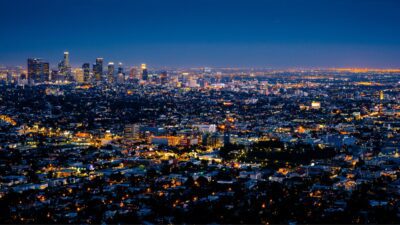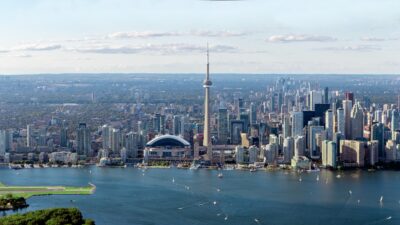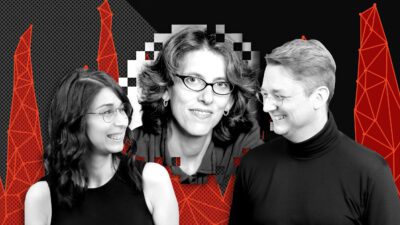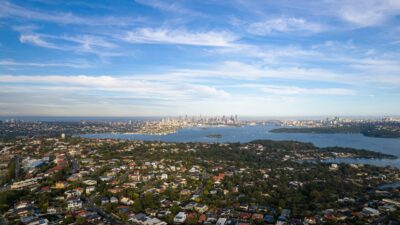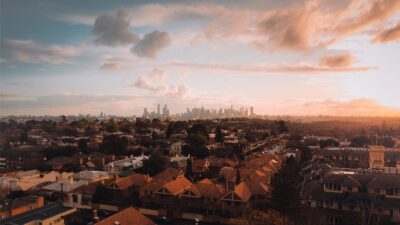Sandra Peter and Dallas Rogers
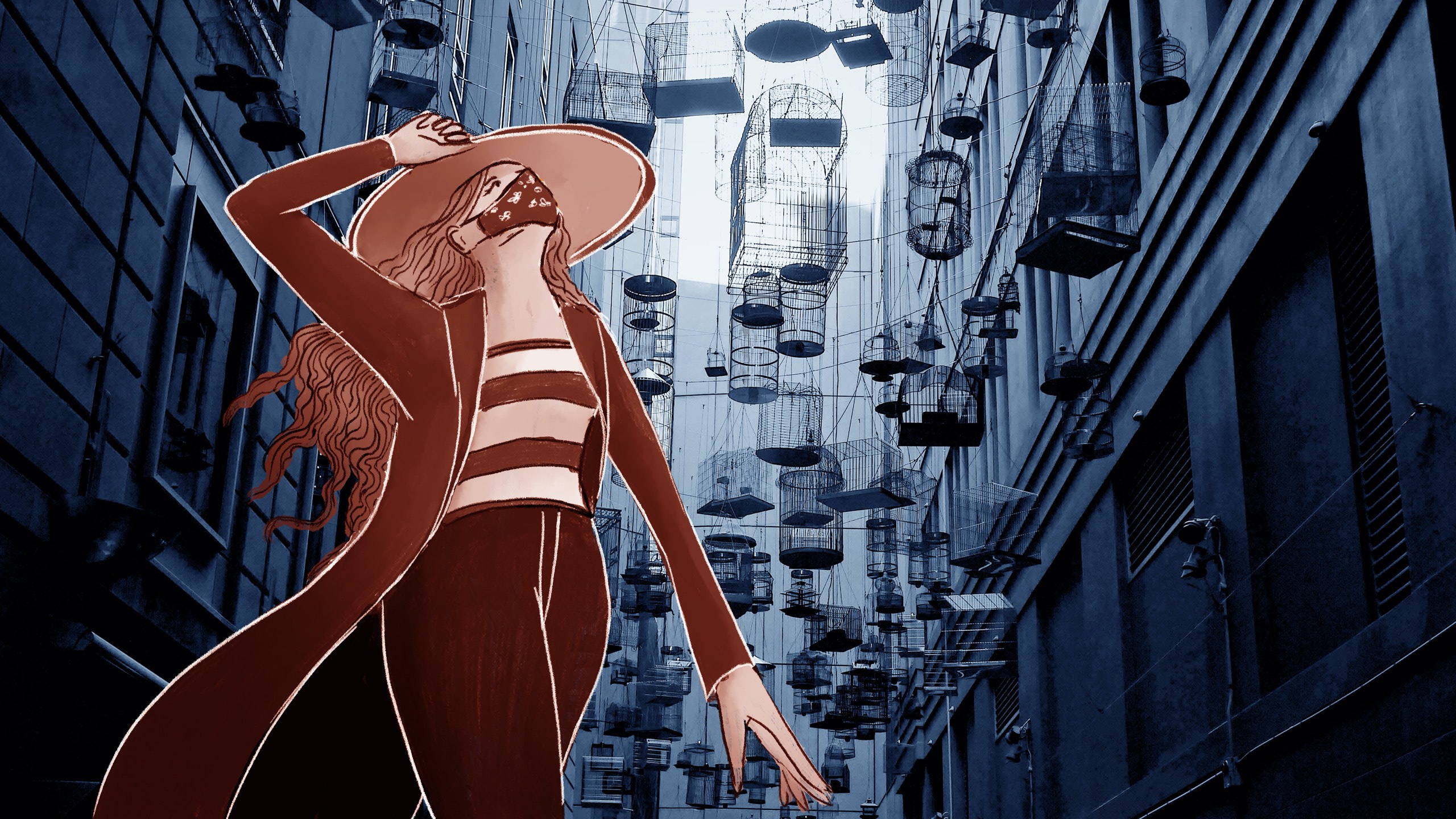
Changing cities on Corona Business Insights
How are cities changing and adapting during the pandemic? We talk with urban geographer Dr Dallas Rogers on how COVID-19 is reshaping urban areas.
As COVID-19 sets out to change the world forever, join Sandra Peter and Kai Riemer as they think about what’s to come in the future of business.
Our guest this week
Dr Dallas Rogers, The University of Sydney School of Architecture, Design and Planning
Shownotes
Dallas’ new book on understanding urbanism
Urban academics from around the world discuss their respective cities during COVID
Journal article on podcasting as digital methodology
Dallas’ paper on housing policy and COVID-19
Dallas’ paper on long-term, structural housing issues in Australia
Dallas’ paper on public housing and COVID-19
Has COVID-19 harmed Western cities?
How previous pandemics have shaped cities
Why big cities will survive and thrive after the pandemic
The changing nature of urban retail
How COVID all but killed the Australian CBD
Global experts predict what life in cities will look like post-COVID
COVID-19 could radically alter urban life
This episode is part of a podcast series covering what COVID-19 will mean for the business world, where we look at the impact on the economy, businesses, industries, workers and society. This is part of our ongoing coverage of the impact of COVID-19 on the future of business.
Follow the show on Apple Podcasts, Spotify, Overcast, Google Podcasts, Pocket Casts or wherever you get your podcasts. You can follow Sydney Business Insights on Flipboard, LinkedIn, Twitter and WeChat to keep updated with our latest insights.
Send us your news ideas to sbi@sydney.edu.au.
Dr Sandra Peter is the Director of Sydney Executive Plus and Associate Professor at the University of Sydney Business School. Her research and practice focuses on engaging with the future in productive ways, and the impact of emerging technologies on business and society.
Dr Dallas Rogers is a Senior Lecturer within the School of Architecture, Design and Planning at the University of Sydney. His research interests include housing, land, real estate and urban development
Share
We believe in open and honest access to knowledge.
We use a Creative Commons Attribution NoDerivatives licence for our articles and podcasts, so you can republish them for free, online or in print.
Transcript
Intro From The University of Sydney Business School, this is Sydney Business Insights.
Sandra And this is Corona Business Insights. I'm Sandra Peter. And we're back unpacking the impact of COVID-19 on business, the economy, industry, government, workers and society, and looking at the effects of the pandemic. And this podcast is part of a larger initiative by The University of Sydney Business School. And you can find our COVID business impact dashboard online at sbi.sydney.edu.au/coronavirus. And today I'm joined by Dallas Rogers, Dallas is an urban geographer here at the University of Sydney and he looks at urban development, housing, land and real estate. And he's the host of the City Road podcast, bringing you informed stories about cities and urban life. And Dallas will help unpack how the pandemic is changing cities and how the pandemic will shape urban life. That was good to have you here.
Dallas Thanks a lot. It's good to be here, I will try to do those things.
Sandra We've heard quite a bit about how the pandemic has changed not only outdoor spaces, but transport modes, how we're now all working from home, how the cityscape is being reconfigured, how we're all running from the city. What do you think have been some of the interesting ways in which the pandemic has reshaped our cities?
Dallas One of the first things to say about the pandemic is just the way that it's kind of impacted on the home. And I think this is one of the most unique things about the pandemic, is that everybody universally has had some sort of impact in the home. So we've been confined to the home for some period of time, everybody almost across Australia, that experience has been different for different people, our homes are set up in different ways, we have different access to the Internet, we have different space inside our homes. But universally, we've been confined to the home for some time, and the home actually became the first line of defence for COVID. So when COVID hit, we often think about borders being shut down and things like that, but actually some of the first interventions were to say, 'actually, we should just cocoon ourselves in our own home.' And that brought a lot of issues to do with the home itself to life, everything from domestic violence, to working from home, to how much space different people have in their home, how far our homes are from, you know, our places of work and things like that. So I think, you know, it provided a really interesting lens into what the home is, how the home functions.
Sandra Cities really quickly became quite empty. But then eventually we did get let out of our homes pretty much across the world, even though we're seeing some lockdowns now coming back in. We were let out, Melbourne's enjoying the freedom now. What has become of those public spaces after the first couple of waves of the pandemic?
Dallas Two really interesting things happened with public space, two almost kind of contradictory things. So one, is we saw a whole bunch of new public spaces open up in the city, so things like pop-up cycleways in the city. So, with less cars on the road, and less people moving around the city, it gave councils like the City of Sydney opportunity to actually claim some of that space back and use it for cycling. People were cycling because they didn't really feel comfortable perhaps going on public transport because it was a confined space. So we see these interesting new public spaces pop up, how long they'll be here for, we don't know, I think that's an interesting question. But we also saw the closing down of public space as well. So we saw just through isolation, less foot traffic through the CBD, this had implications for obviously businesses in the CBD. So everything from that less, or sort of more mundane, foot traffic through the CBD, to things like shutting down protests. So we've seen the Black Lives Matter protest shut down. And indeed, protests on the university campus shut down as well. So there has been a pretty radical reconfiguration of public space that goes to questions of mobility, economy, and you know, things like democracy as well.
Sandra To what extent are these changes likely to persist? We've seen in places like Athens or Milan or Bogota, that streets have been retrofitted with bicycle lanes and sidewalks have been widened, just to give people more of an opportunity to be out there. We've seen everywhere from like New York to Lithuania, open air cafes, hundreds of restaurants taking over the footpath, but gyms taking over footpaths, or even retail spaces in places like Rotterdam or San Francisco, public spaces being converted to retail spaces. Is this likely to continue? And what happens to the idea of a public space?
Dallas It's a really interesting question, and I think the kind of predictive research is split on this. So on one side, we have a whole bunch of research in the transport space that looked at other times cities had been shut down for periods of time. And what they found there was that actually, within two years, everyone had gone back to their normal transport behaviour. So, there is the question about, when we open back up, when we deal with the pandemic, if, it feels like is the right question there, will we just go back to our own habits of the way we used to use public transport? Another kind of line of thinking is thinking, well, what we're doing now is trialling a whole bunch of new ways of doing public space, of doing employment, of doing business. And actually, what we'll do is lock some of those in. And I think just the Zoom phenomenon is a good way of thinking about something that I think is going to really kind of lock in, I think Zoom is here to stay. I think that mode of kind of communication and doing business and doing, in our job teaching, is going to be here to stay. And it will reconfigure a lot of dimensions of our cities. It'll reconfigure how we use public space, how we use commercial and residential real estate, it'll reconfigure what the home is. So the short answer is, we don't know. I think there'll be elements of reverting back to how things used to be, and elements of, kind of, innovation that we've trialled that will actually move forward, but they won't move forward like we have them now, they'll kind of morph again I think when we come back to a kind of more open city.
Sandra And of course, there's been not just Zoom, but things like Amazon and online shopping that have made huge inroads into retail and that seem to be accelerating what used to already happen, with many retail shops closing and high streets closing. I want to ask you a bit about this idea of rural flight, will there be a shift out of cities and to more rural settings, somehow that seemed to be an, one of these intuitive ideas that's been circling that now that we don't have to live close to our work and we don't have to live in the CBD, people are moving out?
Dallas I think the data is still a bit out on this, we're certainly getting a lot of commentary from real estate agents saying that there is a lot of movement to rural areas. Of course, we've seen this before, the whole treechange and seachange waves have come and gone in the past. Some of those are connected to the age and retirement of our population, so waves of retirement. Some of its connected to actually housing pressures in our cities, and young people who can't leverage their mum and dad's housing wealth to buy a house, literally just choosing to move to a rural centre. I think one of the big things that prevented people moving to rural centres in the past was, one was transport, we didn't have high speed transport nodes. And the other one was telecommunications. Actually, we didn't have the infrastructure and the capacity. And I think what COVID has done is really demonstrated to people that we have at least the tech to run our businesses, run our education, run our lives from a rural area and be highly connected to the city. Maybe we don't yet have the telecommunications infrastructure, and maybe we don't have the transport infrastructure. But if enough people start to move to the rural centres, then there's going to be big pressure on governments to provide that infrastructure.
Sandra And we've seen that actually in Australia, it seems that, and this is a study done by ITLS, that public confidence in transport infrastructure is higher now than it was before. So it seems that COVID has brought these things out and that access to public transport still seems to be a very important thing for people. But I want to go back to this idea of living in the city versus living in rural areas, because obviously, access to telecom and to transport are very important. But it seems that, and as you said, the data is very much still out, in London, for instance, it seems that the Centre for London did an interesting study saying that about 32% of Londoners are now more likely to continue living in the city than moving out. Is the city still very important when you're say, young, this is where you make friends, this is where you build those valuable networks, the culture that fuels innovation, and so on, is that likely to stay?
Dallas So one way to think about this is in terms of some of the motivations for why we might move people to rural centres. And one of the motivations actually has been that we can't address some of the negative social impacts of our cities. So housing affordability, wealth, income inequalities, and things like that. And so one of the solutions to those systemic problems has been, well, let's move people to the rural centres. And I think that that kind of gets that question wrong. I think that rural centres have a lot to offer. But we need to promote what's great about rural centres, and cities have a lot to offer, but they have a lot of problems, one of them housing affordability, another wealth inequality. And actually, we need to address those things inside our cities. So I think there's some things to unpack in there about why we would want people to move to the rural centres. And I think we need to know that empirically. What we need to ask people is, why are you moving to the centres now? Have you worked out that it's easy to work from a rural centre, and that's why you're going there, or can't you afford a house and that's why you're moving there? So I think there's some more empirical work to do with the kind of lived experience of these moves. And I know some people are doing that work, but I think we don't quite know the answer to that question just yet.
Sandra If we look forward, as we're moving out of the pandemic, one of the consequences of this move to rural areas would also be a decrease in density. And we've been talking a lot on this podcast and on The Future, This Week about density being a good thing, that denser cities are more energy efficient and so on. What happens when we now have this conflict between, kind of, public health and climate demands? Richard Sennett from MIT has done a lot of work around climate change and cities, and the evidence does seem to be that living in densely-packed cities is better for the environment.
Dallas I think the density is good for the environment, density done well, that's the phrase that everybody talks about, I think we should be moving towards denser cities in places I think, you know, lining up environmental issues around density, transport-led development, where we've got people on train lines and density around train lines, I think that is great. I don't think it's necessarily a problem for the rural question. I think what's key to having rural centres that might not be as dense is high speed transport networks between them, so that people can travel, and that's public transport systems I'm talking about there, I think that if the environment is the question, we need to get people out of cars, I think the evidence is pretty clear on that. One of the downsides with density in cities is the unequal distribution of densities. So when we get infill, high density dwellings, we tend to have that along transport networks. So in a place like Sydney, we think about the Sydenham to Bankstown line where we're going to get a lot of density infill there. And we risk evicting, or pushing out of those places, some very established multicultural communities. So I think there are some questions in there about where the density goes, and where the density doesn't go, and who it impacts. And just making sure that the existing communities who are going to get the most density will be able to stay in those places. Because I think that there are certainly economic factors to do with density, making the density stack up in a kind of property development sense, there are environmental questions about density being great for the environment. But there are also social dimensions, about increasing density and making sure that the benefits and the risks are spread across the whole society as well.
Sandra What's a thing that we've done really well in during COVID, that you hope to see stay with us even as we come out of this pandemic and move back to some sort of normal life?
Dallas Well, we've all spent a lot of time in Zoom meetings and Zoom teaching rooms. And I think one thing that we've done really well, I think we've surprised ourselves with is how efficiently we moved all of our business, teaching, social practices, online. And that we started to use electronic spaces for doing all sorts of things. I think that was a real kind of social achievement for us to do. It has implications, of course, it has implications for our home, how we build homes going forward, how much space we have in our homes for working. And it has implications for things like commercial and residential real estate, Take, for example, the CBD of Sydney. So I've been talking to developers, and they're actually pretty worried. They're worried about what sort of residential real estate they'll need to build in the future that will accommodate people being at home for longer periods of time. And they're also worried about what sort of office space they need to build, because we're already seeing more people working from home, or they might be working at home for part of the week. And so they're thinking about what type of configuration, what will the future office look like? And that's causing some kind of dilemmas for them, because they have long 10 year development timelines, and they're thinking they need this stock online, you know, in the next few years. So I think there's been some real achievements with COVID but will produce some pretty interesting challenges for us moving forward, just because the timelines on urban development and change are so long.
Sandra Which brings me to what should we do with the thousands of offices now left empty in the CBD, not only Sydney, but in New York ,across the world. What are the opportunities to rethink what we do in the spaces that we already have, before we build the next 10 years’ worth of buildings?
Dallas I mean, one of the really interesting things about looking at COVID and the response to it, was how important the role of government was in the dealing with the pandemic. And some very intractable problems that have just existed for years and years, homelessness, for example, is one of them, the government had solutions for those pretty quick. So we saw around the world when a pandemic hit the city, when we needed to move people into isolation, governments literally busing homeless people, picking them up in buses and driving them to, sometimes hotels, sometimes other spaces and housing them. What that shows us is we can actually deal with homelessness if we want to, there is enough space in our cities to deal with homelessness, we just choose not to. And I think that one of the great reveals of COVID was how quickly we can deal with things like homelessness if we want to. So I think we really do need to think about what happens to this underused stock that exists in our cities. We can do all sorts of things with it. We can turn it into homes for homeless people, we can turn it into pop up artist spaces and get artists back in the cities. We can do all sorts of things, we just need to be a bit creative. And it will probably require us to think a little bit outside of the commercial real estate kind of rent box. They'll need to be other ways of funding and doing that. But they are challenges for us to deal with.
Sandra Dallas, thank you so much for talking to us today.
Dallas Oh, it's been great. Thanks for having me on the show.
Sandra Thanks for listening.
Outro From The University of Sydney Business School, this was Corona Business Insights. The podcast that explores the future of business in the wake of the global pandemic.
Close transcript

